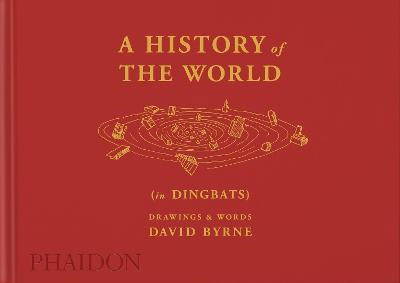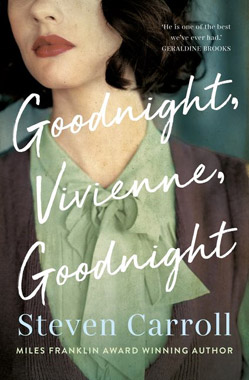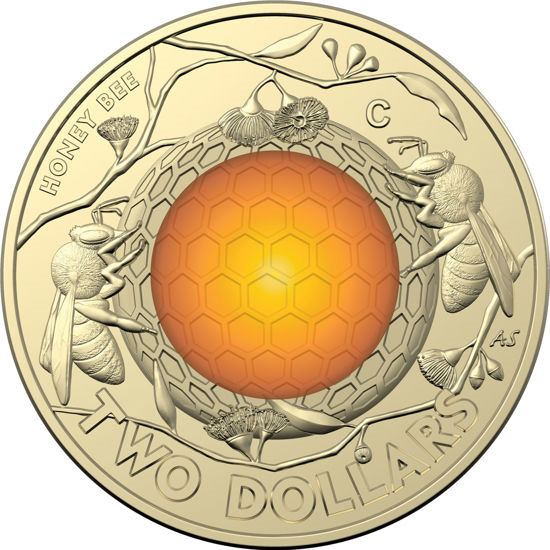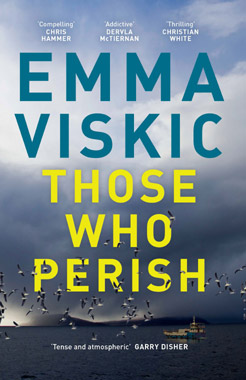A History of the World (in Dingbats), by David Byrne
16 April 2022

David Byrne, the Scottish-American musician, and co-founder of defunct American band Talking Heads, recently published a hardcover book, A History of the World (in Dingbats), a meditation of life during the recent pandemic imposed lockdowns.
Through striking and humorous figurative drawings, the iconic artist and musician David Byrne depicts daily life in intriguing ways. His illustrations, created while under quarantine, expand on the dingbat, a typographic ornament used to illuminate or break up blocks of text, to explore the nuances of life under lockdown and evoke the complex, global systems the pandemic cast in bright light.
RELATED CONTENT
The 2022 ARA Historical Novel Prize
16 April 2022
Entries for the 2022 ARA Historical Novel Prize are open until Wednesday 15 June 2022, in two categories, Adult novels, and Children and Young Adult (CYA), to authors who are citizens, or residents, of Australia or New Zealand.
The Prize is worth a total of $100,000 in prize monies; $50,000 will be awarded to the Adult category winner, with an additional $5,000 to be awarded to each of the remaining two shortlisted authors. In the CYA category, the winner will receive $30,000, while the two short listers will receive $5,000 each.
To be eligible, works must have been published between 1 July 2021 and 30 June 2022, and have most of the story set at least fifty years ago. The longlist, made up of nine titles, will be announced on Wednesday 14 September 2022.
RELATED CONTENT
A trailer for Conversations with Friends TV series
14 April 2022
A trailer for Conversations with Friends, a television series produced by BBC Three and Hulu, based on the 2017 novel of the same name, by Irish author Sally Rooney.
Conversations with Friends follows Frances, a 21 year old college student, as she navigates a series of relationships that force her to confront her own vulnerabilities for the first time. Frances is observant, cerebral and sharp. Her ex-girlfriend, now best friend, Bobbi is self-assured, outspoken and compelling.
Though they broke up three years ago, Frances and Bobbi are virtually inseparable and perform spoken word poetry together in Dublin. It’s at one of their shows that they meet Melissa, an older writer, who is fascinated by the pair. Bobbi and Frances start to spend time with Melissa and her husband, Nick, a handsome but reserved actor.
While Melissa and Bobbi flirt with each other openly, Nick and Frances embark on an intense secret affair that is surprising to them both. Soon the affair begins to test the bond between Frances and Bobbi, forcing Frances to reconsider her sense of self, and the friendship she holds so dear.
It won’t be news to fans of Sally Rooney, but the series goes to air on Sunday 15 May 2022.
RELATED CONTENT
Goodnight, Vivienne, Goodnight, by Steven Carroll
14 April 2022

Goodnight, Vivienne, Goodnight (published by HarperCollins, March 2022), by Melbourne base Australian novelist Steven Carroll, re-imagines a different, perhaps happier, life for Vivienne Haigh-Wood, the troubled first wife of English author and poet, T. S. Eliot.
London, June 1940. With help from friends, Vivienne Haigh-Wood, the wife of celebrated poet TS Eliot, is about to effect a daring escape from Northumberland House, the private insane asylum where she has been held for the past four years. Her family, and most particularly her husband, think she’s insane – and maybe she has been, in the past, Vivienne thinks, mad with love, that is, but she is starting to finally feel like herself again.
There is an old law, Vivienne has been told, that if a person can break out of an asylum and stay free for thirty days, proving they can look after themselves, they can’t make you go back. But closing in on Vivienne is the young Detective Sergeant Stephen Minter, a man with a hidden past of his own, who has orders to track her down…
Eliot is often referred to, though he does not feature as a character, while the presence of the police officer, Stephen Minter, at times lends Goodnight, Vivienne, Goodnight, the final instalment of The Eliot Quartet, with the feel of a police procedural, says Dennis Haskell, writing for The Sydney Morning Herald:
The novel is in part a detective story, but not your usual crime caper. Vivienne’s crime is not really a crime at all; Minter is the opposite of any hard-boiled cop; and Goodnight is not plot-driven. Carroll’s interest is always in character, and his novels are more thoughtful and meditative than dramatic.
RELATED CONTENT
Australian writing, novels, Steven Carroll
Rising numbers of books have been banned in American schools
12 April 2022
In the period 1 July 2021 to 31 March 2022, some 1,145 book titles were banned in American schools, according to PEN America, an authors, and free speech advocacy, group.
In total, for the nine-month period represented, the Index lists 1,586 instances of individual books being banned, affecting 1,145 unique book titles. This encompasses different types of bans, including removals of books from school libraries, prohibitions in classrooms, or both, as well as books banned from circulation during investigations resulting from challenges from parents, educators, administrators, board members, or responses to laws passed by legislatures.
Titles featuring LGBTQIA+ characters, and people of colour, are among many of the books that have become the subject of bans. PEN America notes that while challenges or objections to books made available to school students are within the rights of parents, the number of titles that have been challenged “expanded rapidly” during the nine month reporting period.
RELATED CONTENT
Entries open for 2022 Queensland Literary Awards
12 April 2022
Entries are open for the 2022 Queensland Literary Awards until Friday 29 April 2022. A total of A$125,000 in prize money across eight categories is on offer. In addition, there are four development awards for unpublished manuscripts, and Queensland writers only, valued at A$62,000.
The Queensland Literary Awards showcase outstanding authors from across Australia, celebrating emerging and established authors across a range of genres. State Library of Queensland is proud to manage the awards in collaboration with sponsors, the literary community, and industry partners. On offer are eight national prizes for outstanding published books by Australian writers, illustrators and creators. This includes the $25,000 Queensland Premier’s Award for a work of State Significance which highlights a uniquely Queensland story.
RELATED CONTENT
The 2022 Hugo Awards shortlist
12 April 2022
It doesn’t seem so long ago that the winners of the 2021 Hugo Awards were announced, but the shortlist for the 2022 awards, which recognise the work of science-fiction and fantasy writers, has been unveiled. This year works spanning nineteen award categories have made the cut, with winners being named on Sunday 4 September 2022, at Chicon 8, in the American city of Chicago.
RELATED CONTENT
To honour honey bees, a commemorative two-dollar coin
11 April 2022

Image courtesy of Royal Australian Mint.
Australia’s honey bee industry is officially two hundred years old this year. To mark the milestone, the Royal Australian Mint will soon be making available a commemorative two-dollar coin adorned with two honey bees, and feature a distinct honey-coloured honeycomb centre.
Since its introduction in 1988, the Australian two dollar coin has featured a number of colourfully designed centres, making certain pieces particularly collectible, and in some cases, worth somewhat more than their two-dollar face value. It might be an idea to check through the loose change in your coin jar…
RELATED CONTENT
Those Who Perish, by Emma Viskic
11 April 2022

Those Who Perish (published by Allen & Unwin, March 2022) is the new novel from Melbourne based Australian author Emma Viskic, and is the fourth, and concluding, title in the Caleb Zelic series of novels.
Deaf PI Caleb Zelic has always been an outsider, estranged from family and friends. But when he receives a message that his brother, Anton, is in danger, Caleb sees it as a chance at redemption. He tracks Anton down to a small, wind-punished island, where secrets run deep and resentments deeper. When a sniper starts terrorising the isolated community, the brothers must rely on each other like never before. But trust comes at a deadly price…
For devotees of mystery and crime writing, Viskic will be speaking about Those Who Perish this evening, Monday 11 April 2022, at Brisbane’s Avid Reader Bookshop.
RELATED CONTENT
Boiling Point, a film by Philip Barantini
11 April 2022
I once had a housemate who worked as a chef. When he wasn’t on the job — which didn’t seem to be often — he refused to cook. At all. A solitary jar of vegemite, and a loaf of bread, were the only foodstuffs to be found on his shelf in the pantry of the kitchen. Before moving in, another housemate warned me not to expect culinary feasts to be served.
Perhaps Boiling Point, trailer, the new drama feature from Britsh filmmaker Philip Barantini, goes someway to explaining my former housemate’s reluctance to go near a kitchen outside of working hours. Who’d want to be thinking about their pressure-cooker like workplace environment when they weren’t on duty?
On the busiest night of the year at one of the hottest restaurants in London, charismatic, commanding head chef Andy Jones balances along a knife’s edge as multiple personal and professional crises threaten to destroy everything he’s worked for. A surprise visit from a health and safety inspector sets the staff on edge as the overbooked hotspot begins to fill with guests. Jones alternately berates and cajoles his diverse staff, trying his best to diffuse tensions between management and his crew, while catering to the ridiculous demands of customers.
RELATED CONTENT
